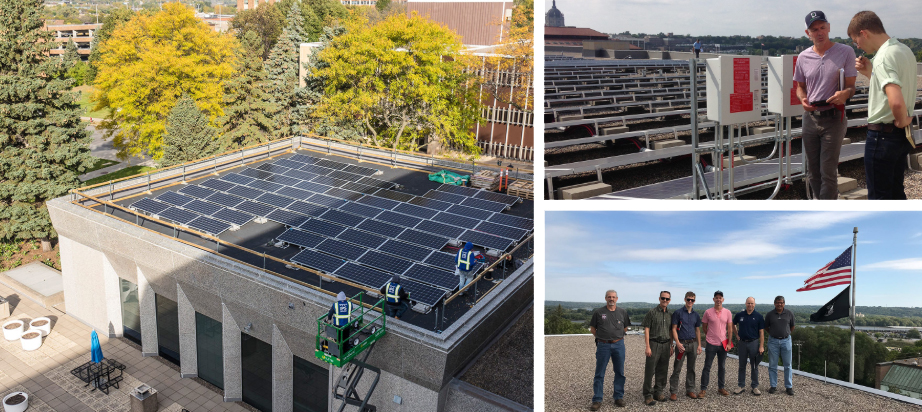
Solar Possible is the first ever collaborative procurement process for solar on public buildings and lands in Minnesota aimed at overcoming clean energy barriers.
This effort was led by Clean Energy Resource Teams (CERTs), Great Plains Institute, and the State of Minnesota’s Office of Enterprise Sustainability for a joint Request for Proposals (RFP) for behind the meter solar installations on public facilities utilizing a third-party Power Purchase Agreement (PPA) financing model. Through this process, CERTs and its partners have built a robust set of tools for local governments and schools to utilize for procuring solar.
Eight local government entities participated in Solar Possible, resulting in four public entities installing 2 Megawatts of solar power over 11 individual sites, which in return avoided 1,804 metric tons of greenhouse gas emissions. The Solar Possible initiative demonstrates an active commitment to fairness, justice, and equality with a 450kW solar array to be installed this summer at South St. Paul’s Kaposia Education Center, with its sizable low- and moderate-income student population. For schools involved in Solar Possible, the solar arrays will be incorporated in the schools’ STEM education for students to be exposed to the benefits of clean energy because CERTs believe that today’s students are tomorrow’s energy decision-makers.
Can we help you move forward with solar?
- The Clean Energy Resource Teams are ready to provide technical assistance, tools, resources, and case studies for local governments and schools. CERTs can assist with site selection, RFP development, financial calculators and more. Visit our page for cities, counties, and tribal nations or get support for your school. Contact Peter Lindstrom to get started.
- The State of Minnesota has developed a master contract with multiple pre-qualified solar developers. Local governments, schools and tribal nations can utilize the master contract. Contact Jordan Wente to learn more, and read a recent blog post for more about sustainable purchasing with the State.






